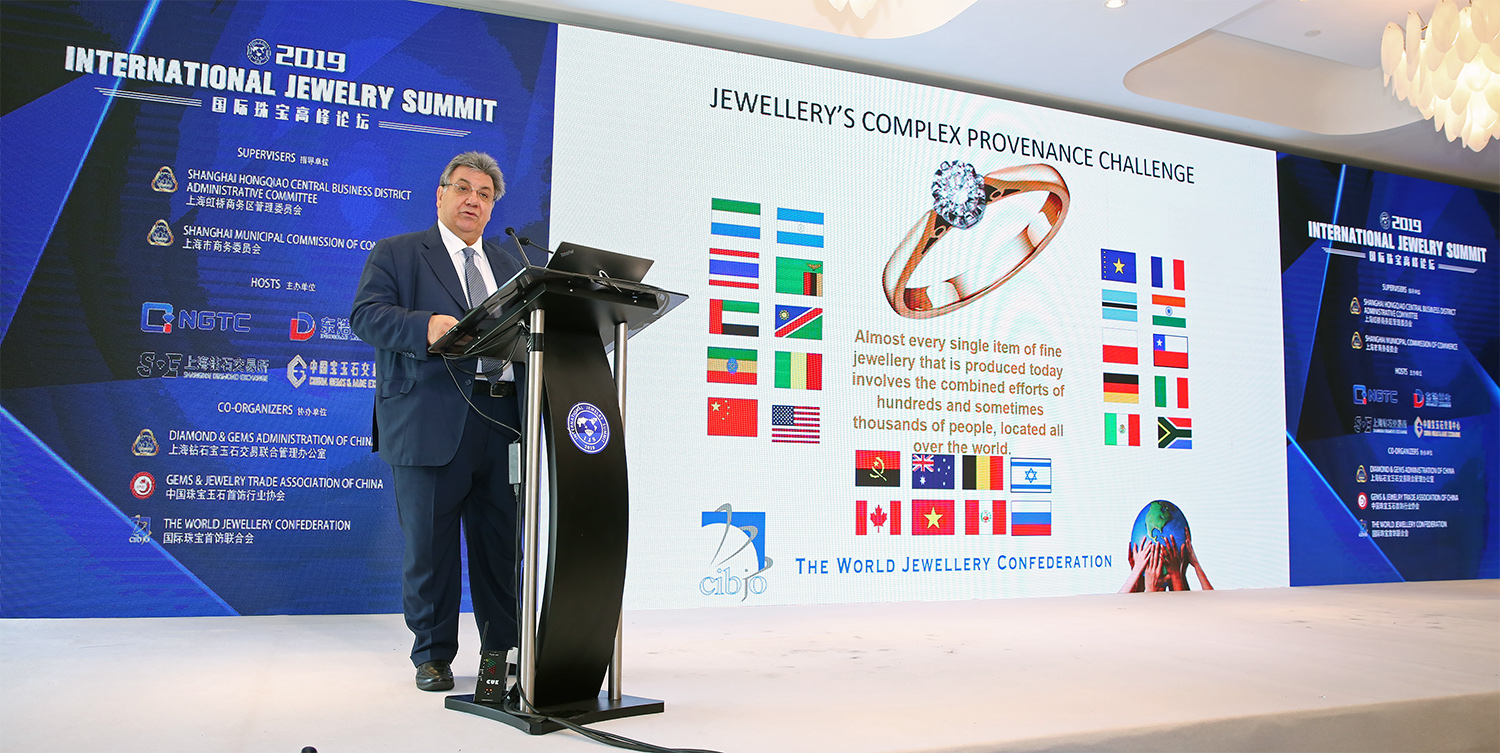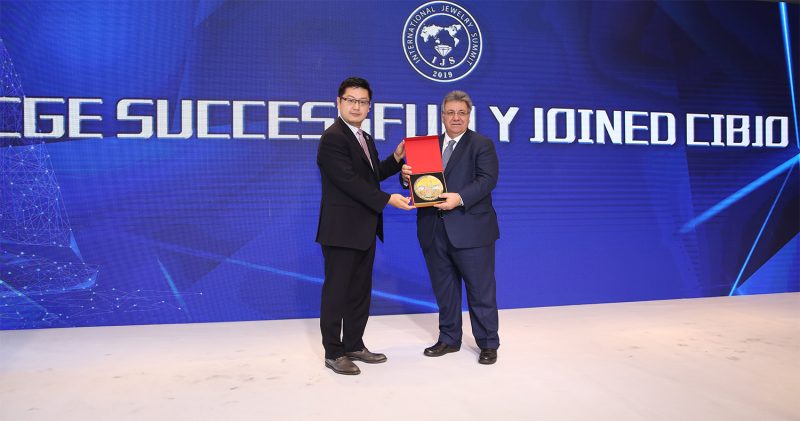CIBJO President delivers keynote address at Chinese Import Expo on traceability standards in jewellery

CIBJO President Gaetano Cavalieri delivering the keynote address at the International Jewellery Standardisation Summit, which was held during the Second Chinese Import Expo in Shanghai on November 8, 2019
NOVEMBER 11, 2019
CIBJO President Gaetano Cavalieri has delivered the keynote address at the International Jewellery Standardisation Summit in Shanghai on November 8, 2019, which was held in parallel with the Second China International Import Expo that is taking place in the city. In his address, he focused on the importance of origin traceability standards for the future of the jewellery sector, focusing specifically on their significance for the growth of the business in China.
The summit was coorganized by the China Gem & Jade Exchange, which recently joined CIBJO as a national association member. It was one a number of conferences being held during the China International Import Expo, in which the Chinese government is seeking to promote the opening of the giant Chinese market to the international trade.
Full traceability is very difficult in the jewellery sector, and is generally limited to a small number of companies that control the full range of production, from the mine through retail, the CIBJO President said. There are also a growing number of technological solutions, many of them using blockchain, where every time a gemstone, jewellery component or full item of jewellery changes hands, the transfer of ownership or custody is recorded.
“These are all exciting developments, but currently they are effective with only a small number of the materials flowing through the chain of distribution,” Dr. Cavalieri said. “Consequently, if we are going to talk about systems that encompass the bulk of materials that we handle, we have to look for administrative solutions. This means creating paper trails, or more appropriately for the world in which the live, digital trails.”
“What we essentially are talking about is doing due diligence. In other words, carrying out a series of acts that essentially verify that all the parties supplying you have also done the appropriate due diligence,” he continued.
Describing a number of the existing due diligence systems being used in the industry, including those mandated by law, like the Kimberley Process Certification Scheme, national Anti-Money Laundering (AML) regimes, the Dodd Frank Act the European Union’s conflict minerals regulations, as well other industry enforced systems, some of which require third-party auditing, Dr. Cavalieri introduced CIBJO’s new Responsible Sourcing Blue Book of standards and guidelines, which was approved at the beginning of this year.

CIBJO President Gaetano Cavalieri being recognized by Simon Chen, Executive Vice President of the China Gems & Jade Excgange, during the International Jewellery Standardisation Summit in Shanghai on November 8, 2019.
“Like the other CIBJO Blue Books, the standards and guidelines contained in the proposed CIBJO Responsible Sourcing document are recommendations, as opposed to conditions of membership,” he stated. “However, they should come to serve as benchmarks for responsible sourcing systems developed and applied by industry organisations and commercial bodies worldwide, and by governments.”
“An operating principle of the Responsible Sourcing document is that it will be inclusive, meaning that there is an expectation that the standards, guidelines and systems that it describes can reasonably be applied by all members of the industry, irrespective of size or financial capacity, Dr. Cavalieri stressed.
“Does this trace every component in an item of jewellery back to that specific part of the world in which it was sourced?” Dr. Cavalieri asked.
“No, it does not, and given the structural complexities of an industry such as ours, it is unlikely that any such system, covering most if not all the jewellery in the value chain, will ever be created,” he said. “But what it does is help create system by which every participant becomes a link in a chain of trust. Together we provide the commitment to integrity that our consumers require. This will work on one condition, and that is we all play our part. And to that we need common standards, which apply in China, as they do in Italy, or in any other part of the world.”
